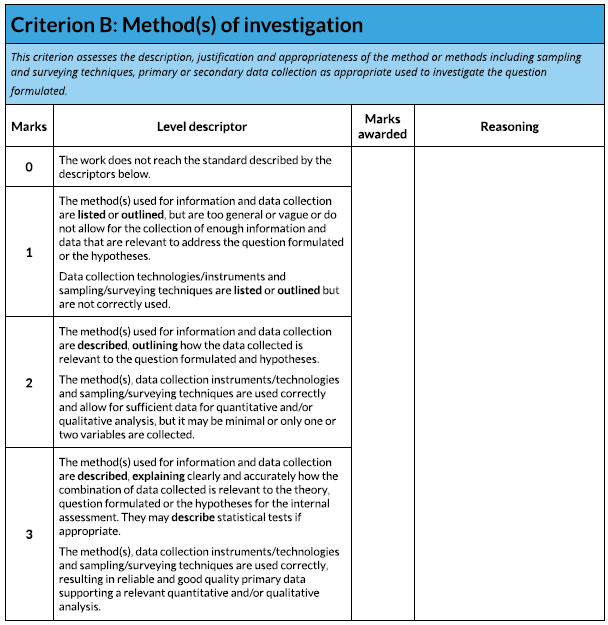Methods of Investigation...
3 marks available
Suggested word count of 300 out of the 2500 words
Deadline First Draft: Wednesday 3 July 2024 - 21h00 **note 'Us and Them' School Show**
Suggested word count of 300 out of the 2500 words
Deadline First Draft: Wednesday 3 July 2024 - 21h00 **note 'Us and Them' School Show**
You must only describe the method(s) used to collect the data you will use. Keep a close eye on your word count!
Here are all of the methods that you employed:
- Sustainable Tourism Management Index
- Index of Services and Amenities
- Environmental Survey
- Bi-Polar Survey
- Price of Coca Cola Test
- Questionnaire (optional)
You should only describe the methods for the data you are going to use to answer your sub-hypothesis and therefore the fieldwork question.
State the usage of primary and secondary information. Be sure to define what each means.
Explain that both resort towns were split into 5 similar land use zones and that in four groups we surveyed each zone and shared results in the evening debrief.
Include a copy of each of the three or four surveys and explain why the weighting is different on many of the surveys.
Explain how each method will help you to answer your research questions. Try to avoid being repetitive in this section!
Remember you can use annotated photos/diagrams to help reduce the amount of words.
You must justify the methods used and the quality of the data collected.
You could discuss sampling techniques - see pages 159-162 of Waugh, David. Geography: An Integrated Approach. Third ed. Walton-on-Thames: Nelson, 2000.
Make sure you do the following...
- Describe each of the methods used to collect your data. Perhaps using annotated photographs / diagrams would be a good idea.
- Describe how you collected your data (in teams of 4) & shared the data afterwards on a Google Sheet.
- Describe where you recorded your data and include a scan of a completed page from the data collection booklet.
- Describe how each method is relevant to helping to answer each of your hypotheses
- Discuss sampling techniques and mention limitations.



